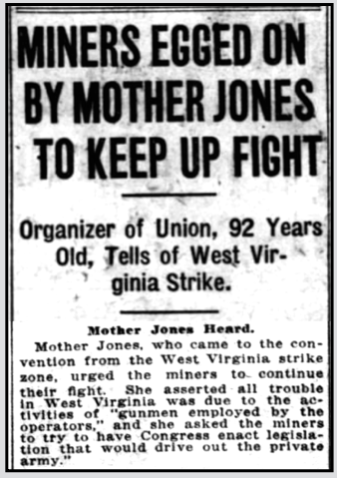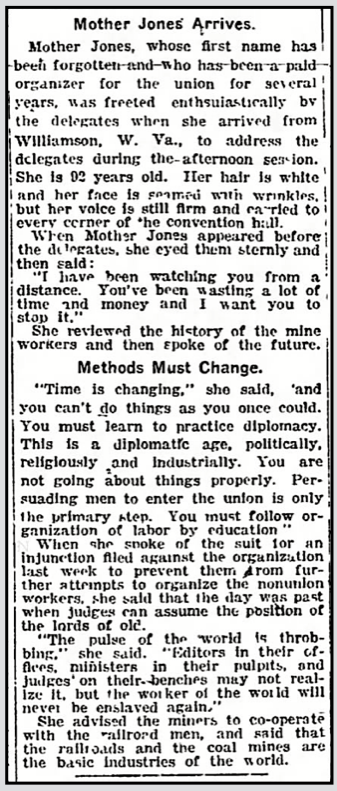 —————
—————
Hellraisers Journal – Saturday October 28, 1922
Mingo County, West Virginia – United Mine Workers Calls Off Strike
From The West Virginian of October 27, 1922:
END OF TWO-YEAR STRIKE IN MINGO
STOPS MINE WAR
—————
Big Factor in Labor Disturbances in State
Passes Out of Existence.
———-CHARLESTON, W. Va., Oct. 27.-Mingo County, greatest single factor in the labor disturbances of the Southern West Virginia coal fields, was free from the last vestige of its “mine war” today with the announcement made last night that the two year strike there had been abandoned by the United Mine Workers.
The announcement was first made at Williamson by R. B. White International organizer, on receipt of a letter from International President John L. Lewis, and was confirmed at district headquarters here by District Secretary Fred Mooney. The principal visible effect will be abandonment of the tent colonies maintained since the strike began, July 1, 1920, and the possible return to work in the non-union mines of the county of some of the 200 occupants of the colonies and of the strikers, whose numbers are variously estimated by union and operator authorities.
The attempted unionizing of the Mingo County mines was the beginning of a long series of events reaching their high points in the declaration of martial law and the “miner’s march” that was halted after a week’s fighting on the Logan-Boone County border in 1921. Out of evictions of miners’ families before the strike was called grew the famous Matewan street battle, when Baldwin and Felts detectives and inhabitants clashed with a death toll of ten and from that time on a series of disorders, including much shooting across the Tug River, separating West Virginia and Kentucky, caused a number of deaths. Martial law was declared May 19, 1921, and this proclamation was followed by another and the establishment of a military force June 27 of the same year, after the courts had held military occupation was necessary to martial law.
Rumors that union men were being mistreated in Mingo, coupled with the killing at Welch in August, 1921, of Sid Hatfield and Ed Chambers, chief figures in the Matewan battle, were given by union miners in other fields as the causes of the march late in August on which are based the trials of union officials now being held at Charles Town.
The announcement that the union had abandoned the strike came close on the heels of the repeal on October 17, this year, by Governor Morgan of the martial law proclamations that had been in force for fifteen months.
Union officials have declared that relief work in the tent colonies at one time was costing $25,000 a week and more recently was being conducted at a cost of $11,000 a week. The tent colonies also figured in the suit now pending in federal courts, known as the Borderland case, in which an injunction against the colonies was sought but was denied by the Circuit Court after having been granted in the District Court.
[Photographs and emphasis added.]

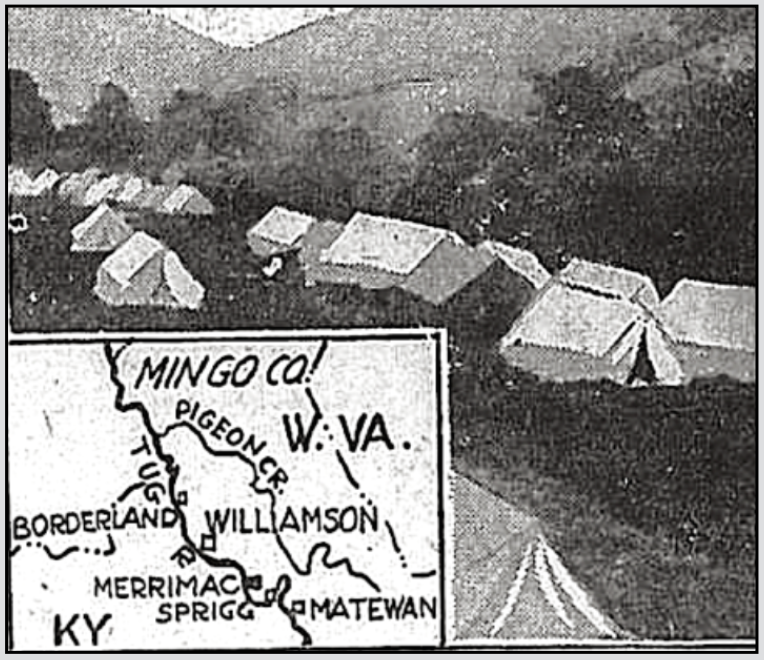
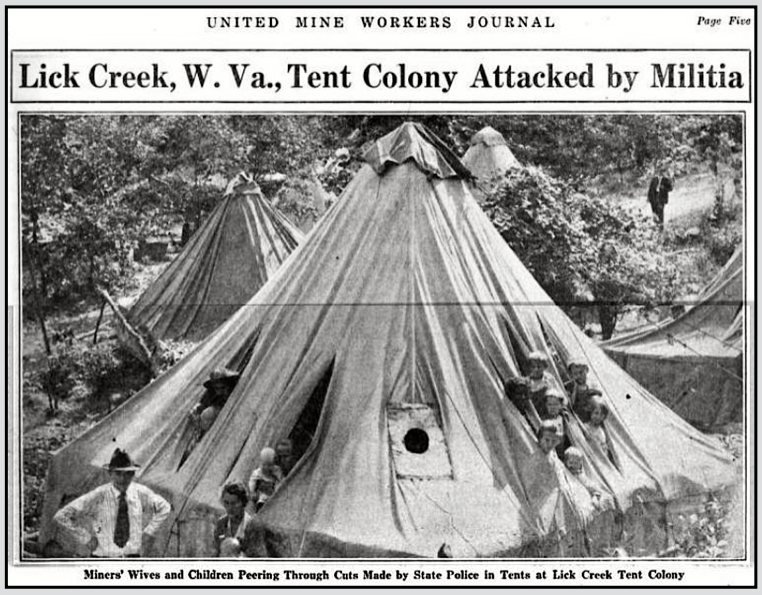
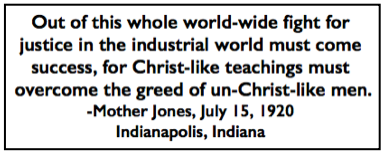 —————
—————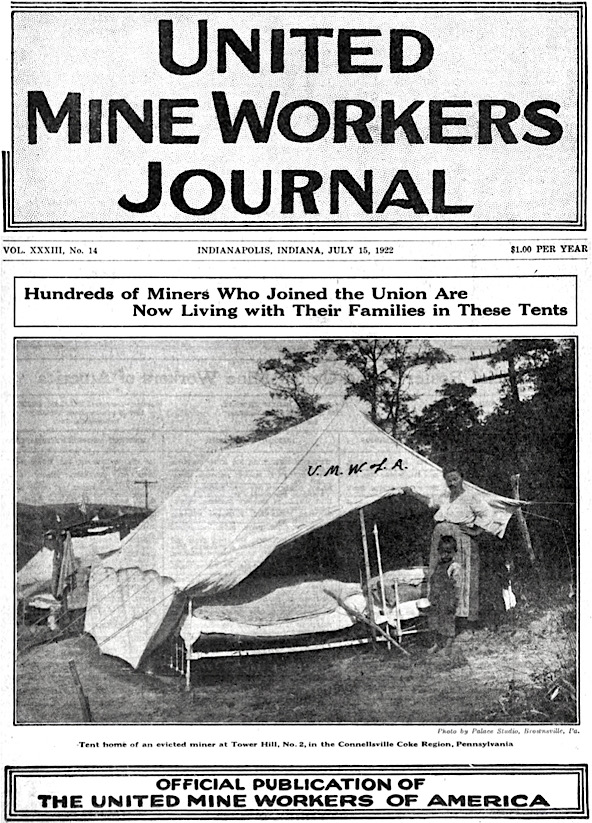
 —————
—————
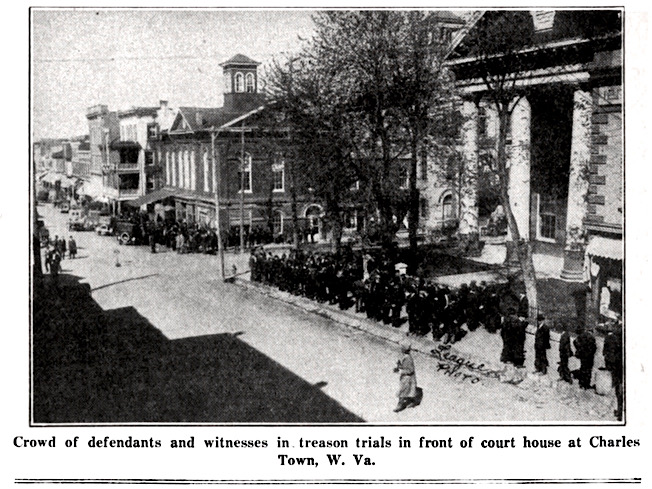
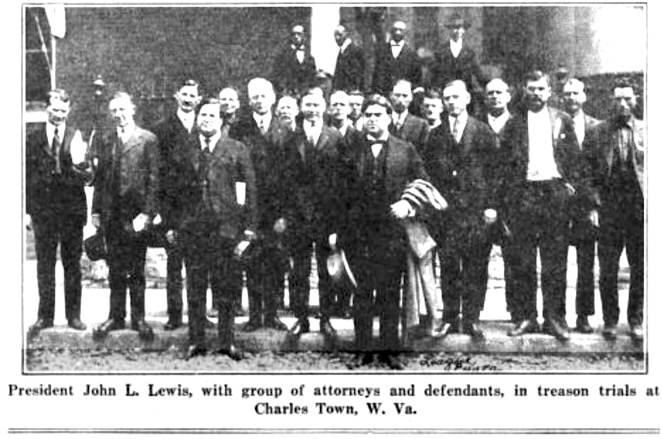 —–
—–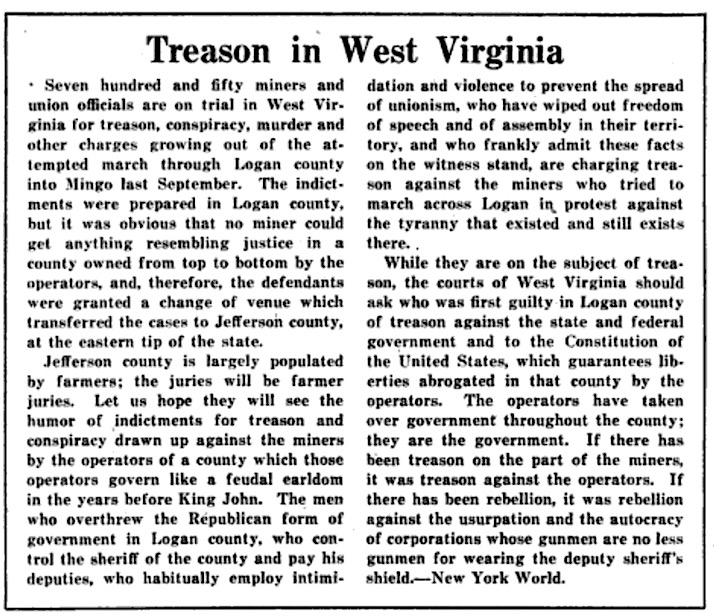
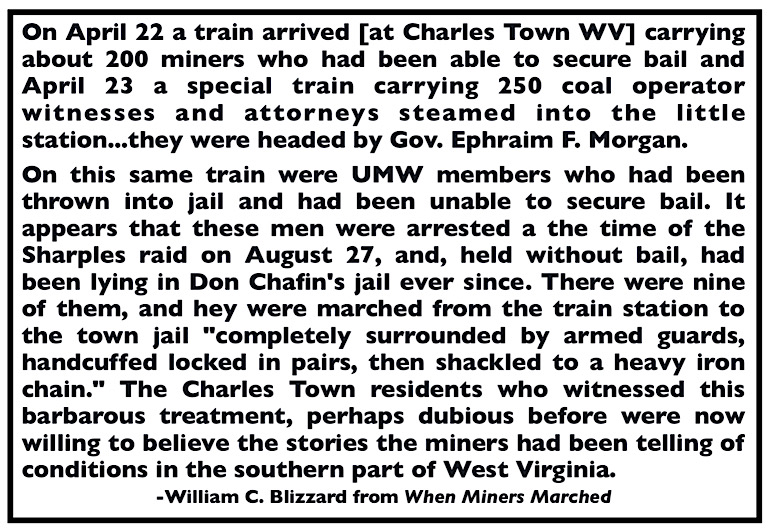 —————
—————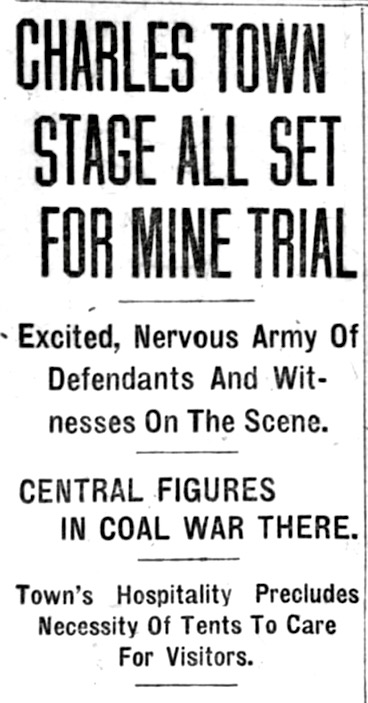
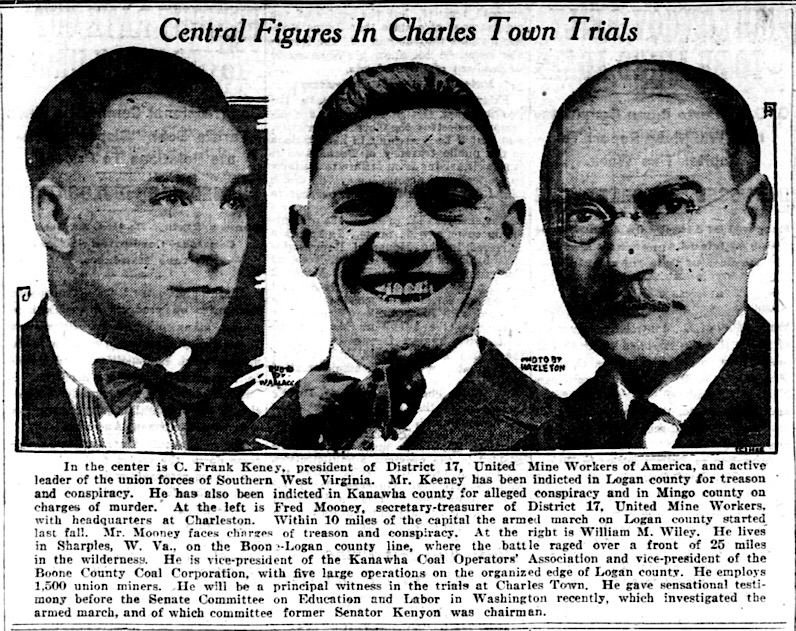
 —————
—————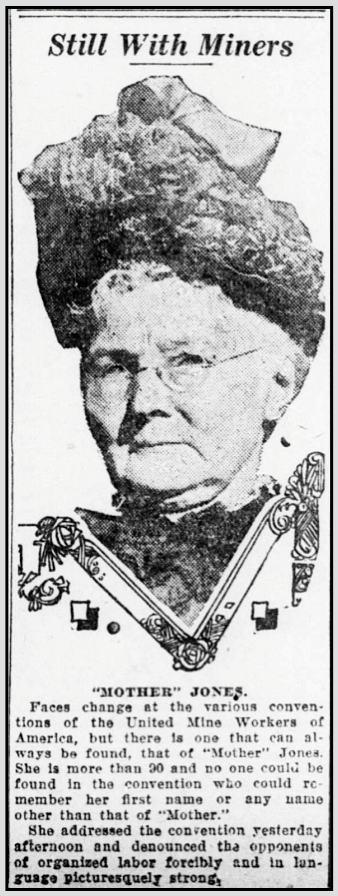
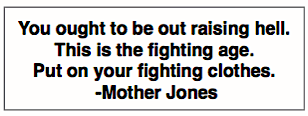 —————
—————
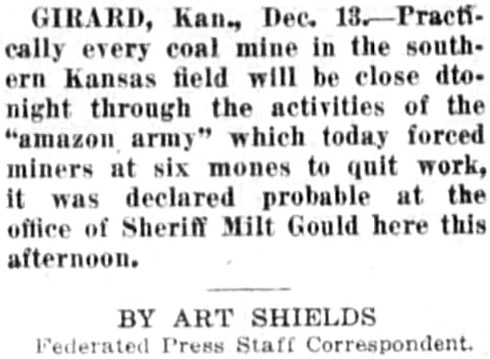
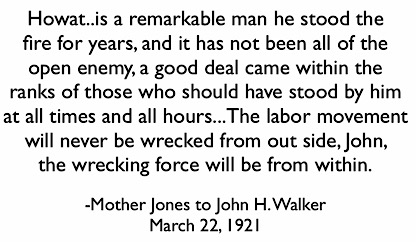 ———————-
———————-
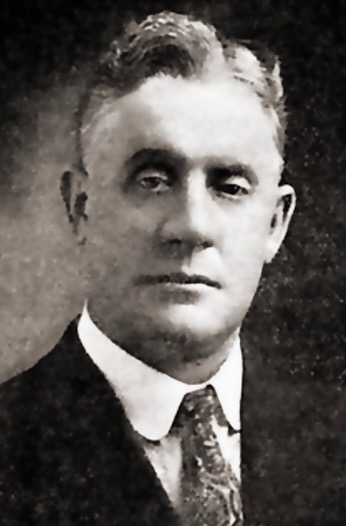
 —————
—————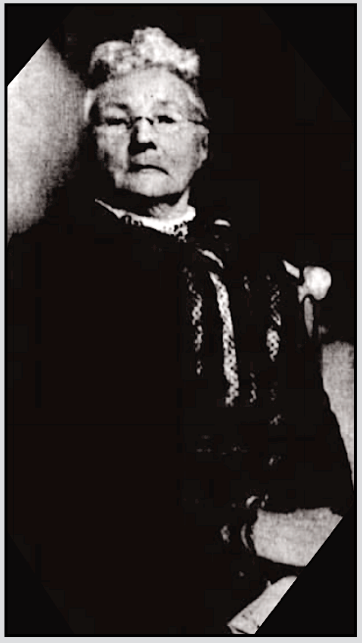
 —————
—————